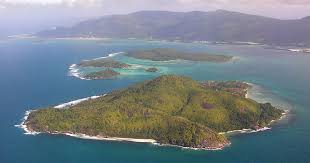Island Escapes: Discovering Paradise Away from the Mainland

The Beauty of Islands
Islands have always captivated the human imagination with their stunning natural beauty and unique ecosystems. From the lush tropical paradises of the Caribbean to the rugged coastlines of the Pacific, islands offer a diverse range of landscapes and experiences for travelers to explore.
One of the most enchanting aspects of islands is their isolation from the mainland, creating a sense of escape and tranquility for those who visit. The crystal-clear waters, white sandy beaches, and vibrant marine life make islands perfect destinations for relaxation and rejuvenation.
Islands are also rich in culture and history, with many indigenous communities preserving traditions that have been passed down through generations. Visitors have the opportunity to immerse themselves in local customs, taste traditional cuisine, and witness unique art forms that reflect the island’s heritage.
Exploring an island allows travelers to connect with nature in a profound way. Hiking through lush rainforests, snorkeling in pristine coral reefs, or watching breathtaking sunsets over the ocean are just some of the unforgettable experiences that islands offer.
Whether you’re seeking adventure, relaxation, or cultural enrichment, islands provide a diverse range of activities and attractions to suit every traveler’s interests. So pack your bags, set sail for an island paradise, and discover the beauty that awaits you!
Exploring Island Wonders: Unveiling the Largest, Formation, Top Destinations, Activities, and Biodiversity Contributions
- What is the largest island in the world?
- How are islands formed?
- What are some popular island vacation destinations?
- What activities can you do on an island?
- How do islands contribute to biodiversity?
What is the largest island in the world?
The largest island in the world is Greenland. Located in the North Atlantic Ocean, Greenland is known for its vast icy landscapes, towering glaciers, and unique Inuit culture. Despite its massive size, Greenland is an autonomous territory of Denmark and offers visitors a chance to experience stunning natural beauty and a way of life shaped by its Arctic environment.
How are islands formed?
Islands are formed through a variety of geological processes that shape the Earth’s surface over millions of years. One common way islands are formed is through volcanic activity, where magma rises from deep within the Earth’s mantle and solidifies as it reaches the ocean’s surface, creating new land masses. Another way islands can form is through the erosion and deposition of sediment, which can build up over time to create land above sea level. Additionally, islands can be formed by tectonic movements, such as when two tectonic plates collide or separate, causing the Earth’s crust to rise or sink and form islands in the process. These natural processes contribute to the diverse and fascinating landscapes that make up our planet’s many islands.
What are some popular island vacation destinations?
When it comes to popular island vacation destinations, there are several iconic locations that consistently rank high on travelers’ bucket lists. The tropical paradise of Hawaii with its stunning beaches, volcanic landscapes, and rich cultural heritage is a top choice for those seeking a blend of relaxation and adventure. The Caribbean islands, including Jamaica, the Bahamas, and Barbados, offer crystal-clear waters, vibrant coral reefs, and lively local music and cuisine. For a taste of European charm combined with Mediterranean beauty, destinations like Santorini in Greece or the Amalfi Coast in Italy provide picturesque settings for romantic getaways. Whether you’re dreaming of palm-fringed beaches, historic landmarks, or exotic wildlife encounters, the world’s diverse island destinations have something to offer every type of traveler.
What activities can you do on an island?
There is a wide array of activities to enjoy on an island, catering to diverse interests and preferences. From relaxing on pristine beaches and soaking up the sun to exploring lush rainforests and hiking scenic trails, there are endless opportunities for outdoor adventures. Water-based activities such as snorkeling, scuba diving, surfing, and kayaking allow visitors to immerse themselves in the vibrant marine life surrounding the island. Cultural experiences like attending traditional ceremonies, sampling local cuisine, and visiting historical sites offer insights into the island’s rich heritage. Whether seeking relaxation or excitement, there is something for everyone to enjoy on an island getaway.
How do islands contribute to biodiversity?
Islands play a crucial role in contributing to biodiversity due to their unique ecosystems and isolation. The limited land area and geographic isolation of islands have led to the evolution of many endemic species found nowhere else on Earth. These endemic species have adapted to the specific environmental conditions of the island, resulting in a high level of biodiversity. Additionally, islands often serve as important habitats for migratory species, providing stopover points for birds and marine animals during their journeys. The diverse array of habitats found on islands, such as forests, coral reefs, and wetlands, further enhance biodiversity by supporting a wide range of plant and animal species. Overall, islands are vital centers of biodiversity that warrant conservation efforts to protect their fragile ecosystems and the unique species that inhabit them.
Leave a Reply